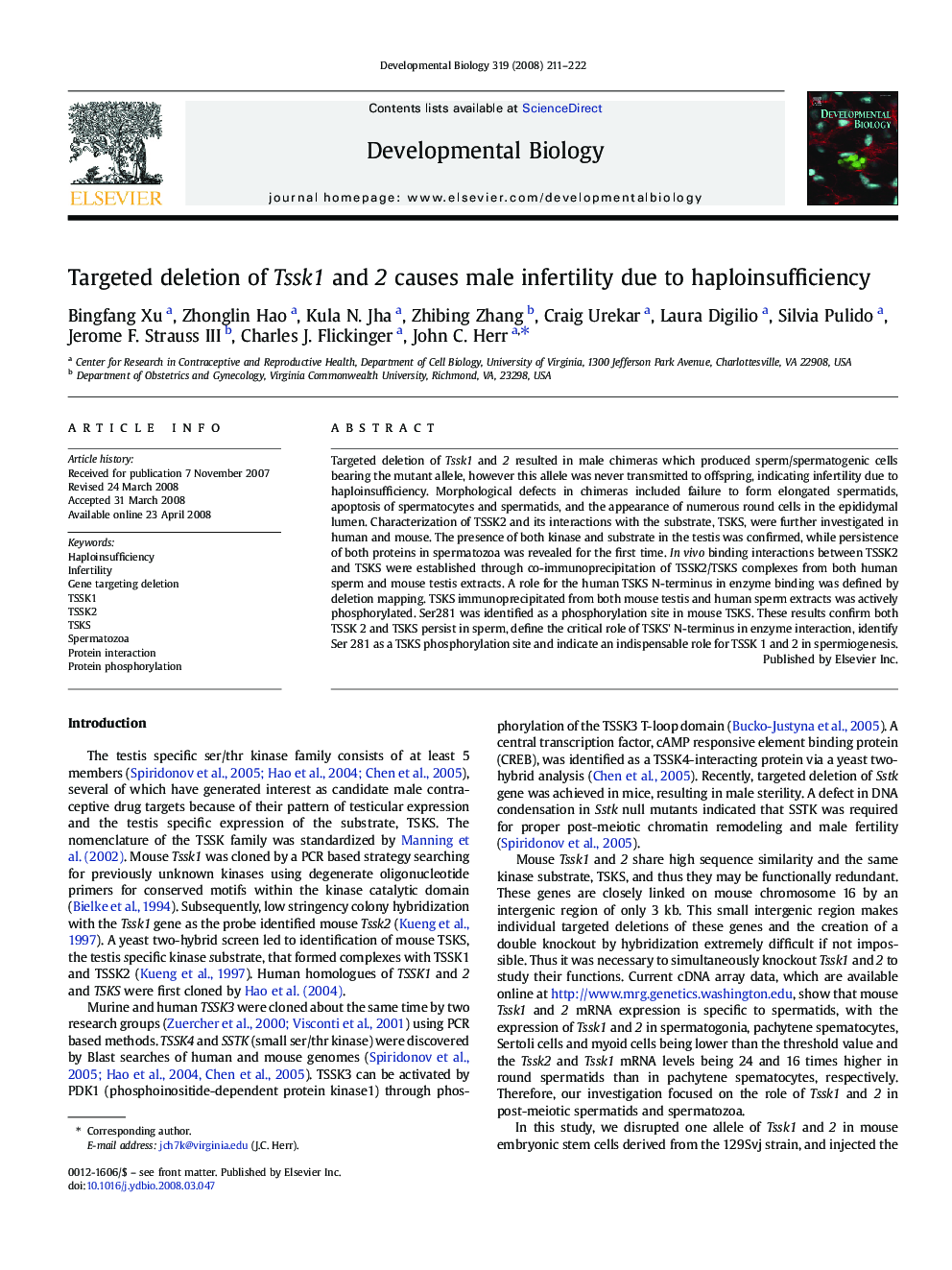| کد مقاله | کد نشریه | سال انتشار | مقاله انگلیسی | نسخه تمام متن |
|---|---|---|---|---|
| 2174572 | 1093809 | 2008 | 12 صفحه PDF | دانلود رایگان |

Targeted deletion of Tssk1 and 2 resulted in male chimeras which produced sperm/spermatogenic cells bearing the mutant allele, however this allele was never transmitted to offspring, indicating infertility due to haploinsufficiency. Morphological defects in chimeras included failure to form elongated spermatids, apoptosis of spermatocytes and spermatids, and the appearance of numerous round cells in the epididymal lumen. Characterization of TSSK2 and its interactions with the substrate, TSKS, were further investigated in human and mouse. The presence of both kinase and substrate in the testis was confirmed, while persistence of both proteins in spermatozoa was revealed for the first time. In vivo binding interactions between TSSK2 and TSKS were established through co-immunoprecipitation of TSSK2/TSKS complexes from both human sperm and mouse testis extracts. A role for the human TSKS N-terminus in enzyme binding was defined by deletion mapping. TSKS immunoprecipitated from both mouse testis and human sperm extracts was actively phosphorylated. Ser281 was identified as a phosphorylation site in mouse TSKS. These results confirm both TSSK 2 and TSKS persist in sperm, define the critical role of TSKS' N-terminus in enzyme interaction, identify Ser 281 as a TSKS phosphorylation site and indicate an indispensable role for TSSK 1 and 2 in spermiogenesis.
Journal: Developmental Biology - Volume 319, Issue 2, 15 July 2008, Pages 211–222